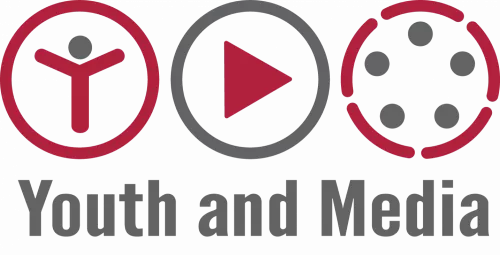
Youth Engagement with the Digital Economy: A Deep Dive
New Report Explores Emergent Issues at the Intersection of Youth, Online Platforms and Spaces, and the Digital Economy
As people engage in a digital platform ecosystem where the boundaries blur between leisure, play, and work, what key challenges and opportunities do they face? Who can develop skills through their online activities and benefit from earning different kinds of capital, and who cannot? What are people’s motivations to participate in economic activities online, and how do they vary across gender, race, and socioeconomic background? What can we all learn by taking a closer look at young people in today’s digital economy?
The global spread of the Internet, massive adoption of mobile devices, and consolidation of social and entertainment online platforms have given rise to a digital economy in which youth with access to the requisite technology and skills can participate as consumers, producers, and users. Youth who are able to leverage such opportunities can engage in capital-enhancing activities, learn new skills, and create pathways to employment.
However, not all youth are equally able to participate. Structural inequalities across race, gender, national origin, age, socioeconomic status, and geography (rural/urban) persist in the digital economy. The ability to participate in economic activities online varies according to the motivations, skills, and supports that youth have, and their differential access to economic, social, cultural, and technological resources.
Moreover, the “free labor” performed by youth in the hope of future gains raises new concerns as the most powerful digital platforms base their business models on data extraction and user tracking. These platforms at once empower youth by providing free services, while also profiting from targeted advertising and data-extractivism. Critical scholars have gone as far as calling these business practices “exploitative” — due to the immense wealth generated and held by a handful of corporations.
Against this backdrop, Youth and the Digital Economy: Exploring Youth Practices, Motivations, Skills, Pathways, and Value Creation — a new report and the result of a collaboration between the Berkman Klein Center’s Youth and Media (YaM) team and the Nordic Centre for Internet and Society — highlights both the tremendous opportunities for young people to participate as economic actors as well as the amplification of structural inequalities and the complex risks involved.
The report presents an overview of key issues and three in-depth essays on:
- Youth and Capital-Enhancing Activities
- Youth and Aspirational Labor
- Youth and Virtual Collaboration
Over the coming months, we hope to connect with others working in this space and together reflect on emergent issues at the intersection of youth, media, and the future of the digital economy, including:
- How people around the world encounter opportunities to act as users, consumers, and producers
- How people’s online activities create different forms of capital: social, cultural, economic
- How people’s participation online may be driven by intrinsic and/or extrinsic motivations
- How people cultivate an economic mindset
- How short-term and long-term gains influence engagement
- The importance of collaboration and other social and emotional skills
- The imbalanced power relationships between corporate platforms and their users
- How the lines between work and leisure, and work and play are blurring
- The ways adult stakeholders across governmental, vendor, non-profit, and other sectors foster youth participation in the digital economy
- How power relationships between adults and youth are shifting
- The need for metrics that assess different forms of online value creation
- The role parents/caregivers have in translating young people’s experiences into economic value
This new report provides a starting point for further examination of these critical questions.
The YaM team also recommends these related resources:
- The Digital Economy Is More Youthful Than You Think
- Exploring Social Innovation in Norway: A Workshop on Mapping Innovation Ecosystems
- Youth Labor and the Paradoxes of the Digital Economy
Additionally, you may find educational resources addressing the digital economy on the YaM team’s Digital Citizenship+ (Plus) Resource Platform (DCRP). The DCRP is home to 100+ educational tools (e.g., learning experiences, visualizations) that youth can use on their own, or can be implemented in formal or informal learning spaces. For example, the playlist Crafting a Successful Resume is a set of learning experiences that encourages young people to examine the relationship between their personal experiences and the skills they offer, identify jobs that match their interests and background, and create a resume that can be used for opportunities they’re excited about. These learning experiences are also available for group-based settings; please see Exploring Experiences, Identifying Our Strengths, and Creating a Resume.
To read the newest YaM report, please visit SSRN or DASH.
If you’re interested in exploring one of the 12 emergent themes listed above with YaM and/or would like to work together to create additional educational activities around young people and the digital economy, please feel free to reach out to the YaM team at youthandmedia@cyber.harvard.edu.
You might also like
- publicationYouth and the Digital Economy

